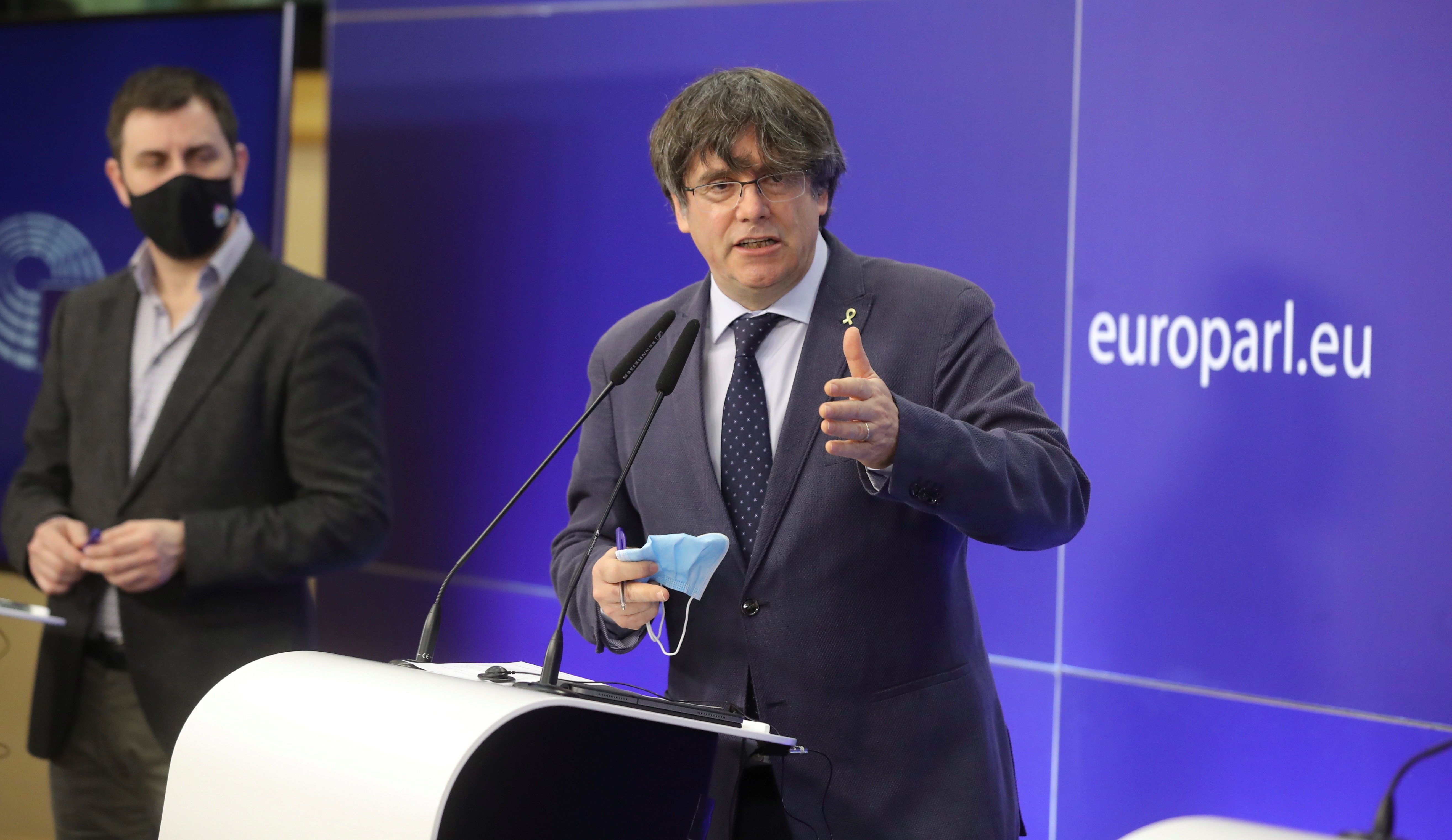The statements made by former commissioner José Manuel Villarejo, accusing the Spanish National Intelligence Center (CNI) of being behind the 17-A terrorist attacks, have prompted the pro-independence movement to demand explanations to the Spanish government. President Carles Puigdemont defended that the Spanish state is responsible for the 2017 terrorist attack in La Rambla, and has argued it with an extensive Twitter thread. Puigdemont assured that the Spanish state is responsible for the 16 deaths due to its refusal to fully investigate the connections between the mastermind behind the attack, the Ripoll imam Abdelbaki es Satty, and the Spanish secret services. The state, he said, also has the responsibility for the forceful statements made by Villarejo in court.
According to the president, the former commissioner's statements are valid, as he has been "at the heart of the Spanish deep state", and therefore knows what he is talking about. "He has incriminated Spain in one of the latest terrorist massacres in Europe," he said. Puigdemont argued that the "Spanish deep state" took the lives of 16 innocent people and injured over a hundred others in order to "send a message to the people of Catalonia", who were preparing to hold the October 1st independence referendum. It is for all these reasons that the president considers that the defence of the Spain’s unity has led to "extremely serious" criminal behaviour.

He demanded that the Pedro Sánchez government open the parliamentary commission of inquiry that the main Spanish political parties have refused, in order to investigate the actions of the CNI and the Spanish police. In addition, he called for the prosecution of those responsible in the police and intelligence services involved in "this crime" in order to "judge them". Puigdemont assured that "getting blood on one's hands" to defend "the homeland" is accepted in certain sectors of Spanish society, politics and the media.
After the statements made by former commissioner José Manuel Villarejo, accusing the Spanish National Intelligence Centre (CNI) of being behind the attacks of August 17th, the Catalan pro-independence movement has demanded explanations. It has done so from Barcelona and also from Madrid, where the parliamentary groups of ERC and Junts per Catalunya have registered several requests for hearings, including those of Spanish prime minister Pedro Sánchez and former director of Spanish intelligence, Félix Sanz Roldán. Villarejo has assured that the CNI turned a blind eye to the activities of the Ripoll imam in order to give Catalonia "a scare" a few days before autumn of 2017.
On the one hand, the spokesperson of Esquerra Republicana in the Congress of Deputies, Gabriel Rufián, submitted three requests for hearings in the Congress of Deputies: those of prime minister Pedro Sánchez, minister of the Interior, Fernando Grande-Marlaska, and former director of the CNI, Félix Sanz Roldán. In a tweet, Rufián asked the Spanish government for "immediate" explanations on Villarejo's statements. The ERC spokesperson also said that they will once again push for the commissions of enquiry into the 17-A attacks, which were categorically and obstinately vetoed. "The Spanish government cannot remain silent", he claimed.
The same steps have been taken by Junts per Catalunya. Its spokesperson in Congress, Míriam Nogueras, registered three requests for hearings: Pedro Sánchez, Fernando Grande-Marlaska and the minister of Defence, Margarita Robles, responsible for the CNI. They want them to clarify the level of "knowledge of the Spanish government" about what Villarejo declared in court. At the same time, its spokesperson in the Senate, Josep Lluís Cleries, has registered two requests for a hearing in order to "explain the government's position in the face of serious statements". He also requested the presence of Marlaska and the current director of the CNI, Paz Esteban.

